Contents
Ever wonder why a Mojito is called a Mojito or how the Margarita got its name? These cocktails aren’t just delicious — their names often carry rich, unexpected stories that trace back to places, people, languages, and culture.
Some drinks are named after locations, like the Daiquiri, which originated in a small Cuban village of the same name. Others, like the Margarita, may be linguistic treasures — “margarita” translates to “daisy” in Spanish, hinting at a floral, delicate nature behind the tequila-lime classic 🌼🍸
Cocktail names often reflect:
🌍 Geographic roots (like the Manhattan or Moscow Mule)
🍋 Core ingredients (like Piña Colada — “strained pineapple”)
🧊 Cultural references and wordplay
🕰️ Historical events or legends
Understanding where these names come from adds a whole new layer of appreciation to your drink. It can even give you a few fun facts to drop at the bar the next time someone orders a Negroni or Old Fashioned.
So, let’s raise a glass and explore the stories behind some of the world’s most iconic cocktail names — from tropical beaches to roaring speakeasies 🍍🥂
🍹 The Fascinating Origins of Cocktail Names
Cocktail names aren’t just catchy or stylish — they often carry deep cultural roots, linguistic twists, and historical anecdotes that reveal much more than meets the eye. From the streets of Havana to the bars of 1930s Hollywood, many iconic drinks come with stories as rich as their flavors.
Some cocktails are named after people, others after places, and some reflect the feelings they evoke or the ingredients they highlight. Knowing the stories behind these names adds a whole new layer of enjoyment — turning your next sip into a mini history lesson in a glass 🥂📖
🕰️ Historic Legends Behind Famous Cocktails
Many cocktail names come from quirky stories or vivid characters who helped shape cocktail culture. These tales have become part of the mythology of mixology, passed down through generations of bartenders and cocktail lovers.
🧟♂️ The Zombie
Created by Don the Beachcomber in the 1930s, this tiki classic earned its name in dramatic fashion. After drinking it, a customer reportedly told Don he felt like a zombie — hence, the name. Packed with rum and tropical juices, the Zombie became famous for its potent punch and theatrical presentation.
🌼 The Margarita
This tequila-based favorite may have multiple origin stories. One theory claims it was named after a woman — Margarita, a socialite or muse. Another suggests it evolved from the word “daisy”, as “margarita” means daisy in Spanish. In the early 20th century, a class of cocktails called daisies featured citrus, liqueur, and a base spirit — just like the Margarita.
These legends aren’t just entertaining — they show how language, memory, and personal stories leave their mark on what we drink. Behind every name is a blend of history, creativity, and culture that gives each cocktail its own identity 🍸✨
🌎 Cultural Influences on Cocktail Naming Conventions
Many classic cocktails are deeply connected to the culture, geography, and traditions of the places where they originated. Their names often reflect not only the ingredients or style of the drink, but also the flavor of local life.
Take the Mojito, for example — a refreshing mix of rum, lime, mint, and sugar that originated in Cuba. The name is thought to come from “mojo,” a traditional Cuban sauce made with lime and garlic, suggesting a link to flavor, freshness, and heritage. This connection shows how local culinary terms and customs often find their way into cocktail names.
Tropical and tiki cocktails, like the Mai Tai or Blue Hawaiian, also draw heavily from island imagery, Polynesian motifs, and regional language. These names evoke:
- 🌴 Relaxed island culture
- 🗿 Invented or borrowed language (like faux-Polynesian terms in tiki bars)
- 🍍 Visual and ingredient-based storytelling
In short, a cocktail’s name isn’t just branding — it’s a miniature cultural postcard.
🗣️ The Role of Language in Cocktail History
Language plays a powerful role in how cocktails are named, remembered, and spread across the globe. Many names are a result of linguistic blending, where local slang, foreign words, and descriptive terms combine to create something distinctive and shareable.
For example:
- Mojito comes from Spanish, capturing both the drink’s origin and spirit
- Piña Colada literally means “strained pineapple” in Spanish, describing how it’s made
- Negroni was named after Count Camillo Negroni, tying a drink to a person and a place
Other cocktails use playful word choices or visual references:
- Cosmopolitan suggests something worldly, modern, and chic
- Bloody Mary plays off historical figures and dramatic imagery
- Tequila Sunrise reflects the vibrant layers of the drink
Great cocktail names are more than clever — they’re linguistic hooks. They invite curiosity, make the drink easy to remember, and give it a personality. The blending of language and culture in cocktail history is part of what makes mixology such a rich and fascinating field 🥂📚
📖 Stories Behind the Mojito, Margarita, and Other Signature Cocktails
Some of the world’s most iconic cocktails aren’t just defined by their ingredients — they carry stories, cultural roots, and even a bit of mystery in their names. Whether named after a person, a word in another language, or simply the way the drink looks or feels, each cocktail name offers a unique glimpse into its backstory.
Let’s dive into two legendary drinks — the Mojito and the Margarita — to explore how their names and histories helped shape their global popularity.
🌿 Mojito: From Cuban Roots to Global Fame
Few drinks capture the essence of summer like a Mojito — crisp, citrusy, and cooling. But behind its refreshing taste lies a story rooted in Cuban culture.
The word mojito is believed to come from “mojo”, a traditional Cuban seasoning made with lime, garlic, and spices. While garlic isn’t part of the drink, the shared flavor profile of lime and freshness links the sauce and the cocktail. This suggests that the Mojito may have started as a drink inspired by local flavor traditions.
Classic Mojito ingredients include:
- White rum
- Fresh lime juice
- Mint leaves
- Sugar
- Soda water
Its simple yet invigorating combination made it a hit — first across Havana, then throughout the Caribbean, and eventually around the world. By the 20th century, thanks to American tourism and cultural exchange, the Mojito had become a global icon of island refreshment 🏝️
🍸 Margarita: Myths, Facts, and Name Evolution
The Margarita is arguably one of the most recognizable cocktails of all time — and one of the most mysterious when it comes to its true origin.
At its core, the Margarita blends:
- Tequila
- Fresh lime juice
- Triple sec or orange liqueur
- (Optional) salt rim
The name Margarita means “daisy” in Spanish, and many historians believe the drink evolved from the Daisy cocktail, an old-fashioned recipe involving a base spirit (often brandy), citrus, and a sweetener. The Margarita simply swapped in tequila — which was becoming more accessible in North America in the early 20th century.
There are also romantic legends attached to the name. One claims the cocktail was invented by a bartender for a woman named Margarita who couldn’t handle straight tequila. Others suggest it was named after a showgirl, a socialite, or even a lost love.
Whatever the truth, the Margarita’s bright, tangy flavor, festive presentation, and association with warm weather made it a permanent fixture in cocktail culture — from beach bars to high-end restaurants 🌞🍹
🍸 The Tale of Other Iconic Cocktail Names
Beyond the Mojito and Margarita, many classic cocktails carry names that are just as fascinating — often tied to their ingredients, drinking experience, or the era they were born in. These names are more than labels; they’re part of the drink’s identity, adding character and storytelling to every sip.
🥃 The Old Fashioned: A Nod to Simpler Times
As its name suggests, the Old Fashioned is a tribute to the original way cocktails were made: just a spirit, sugar, water, and bitters. Before fancy names and elaborate garnishes, this was what a “cocktail” meant in the 1800s.
When bartenders started experimenting with more complex recipes in the late 19th century, some patrons still requested their drinks the “old-fashioned” way — and so, the name stuck.
Today, the Old Fashioned is a staple of any classic cocktail menu — minimal, elegant, and rich with bourbon tradition. Its name reflects both nostalgia and simplicity, a time when drinks were strong, straightforward, and made to savor.
🧟♂️ The Zombie: Strong Enough to Wake the Dead
The Zombie cocktail is as theatrical as its name. Created in the 1930s by Don the Beachcomber, a pioneer of tiki culture in the U.S., the Zombie is a potent mix of multiple types of rum, lime juice, grenadine, and spices.
Legend has it that a customer once said the drink made him feel like the walking dead — hence the name. With a reputation for being both fruity and dangerously strong, the Zombie perfectly illustrates how a name can reflect a drink’s effect and mystique.
Its wild presentation — often served with tropical garnishes or flames — has made it an icon of exotic cocktail culture.
These examples show how cocktail names often blend:
- 🕰️ Historical context
- 🥄 Ingredients and method
- 🧠 Emotion, memory, or metaphor
From classic to quirky, every cocktail name has a story — and that story makes the drink all the more enjoyable.
🚀 Modern Trends in Naming New Cocktails
In today’s fast-moving world of mixology, naming a cocktail is no longer just an afterthought — it’s a strategic and creative art form. Bartenders now craft drink names not only to describe what’s in the glass but to reflect their personality, pop culture knowledge, and even branding vision.
Names have become key to how cocktails connect with guests, create buzz, and make a lasting impression in the age of Instagram and TikTok.
🎬 Creative Inspirations from Pop Culture
Modern cocktail names often pull directly from the world of movies, music, memes, and internet trends. A clever reference can instantly make a drink feel fun, familiar, and relevant — even before someone takes a sip.
For example:
- A smoky mezcal cocktail named “The Dark Side” (Star Wars reference)
- A sweet and sour gin drink called “Gin & Juice WRLD”
- A vibrant spritz named “Peach, Please”, riding the wave of cheeky humor
This trend leans heavily on:
- 🎭 Wordplay and puns (e.g., “Tequila Mockingbird”)
- 🎧 Celebrity or character references (think “Beyon-Slay” or “Don Draper’s Nightcap”)
- 📺 TV & film nostalgia (Stranger Things, Mad Men, The Office — all fair game)
These names don’t just entertain — they help bars connect with younger audiences, who enjoy clever nods to the things they love.
🍸 Bartenders and Branding in Today’s Scene
More and more, bartenders are thinking like marketers and storytellers. A great cocktail name isn’t just creative — it’s also a branding tool. It can make a menu more memorable, drive social sharing, and turn a one-time drink into a customer favorite.
Successful modern cocktail names are often:
- 🧠 Simple and snappy — easy to say and remember
- 📲 Social media–friendly — they look good on menus and hashtags
- 🎯 Thematic — fitting a bar’s concept or mood (e.g., film noir–themed names in a speakeasy)
Some bars go further by:
- Creating entire themed menus with clever naming conventions
- Testing name options with guests or on social media
- Asking bartenders to “name and pitch” their own creations as part of the creative process
This approach makes guests feel more connected to the drink and the bar itself — turning a name into part of the experience.

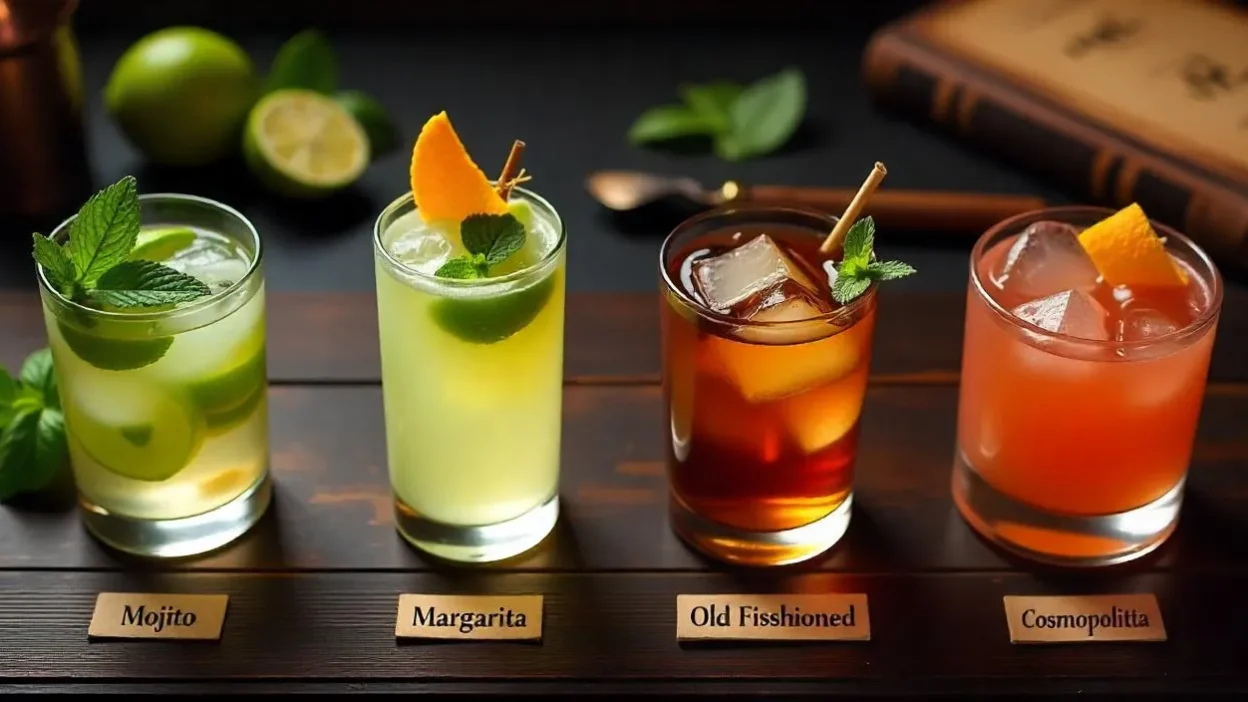
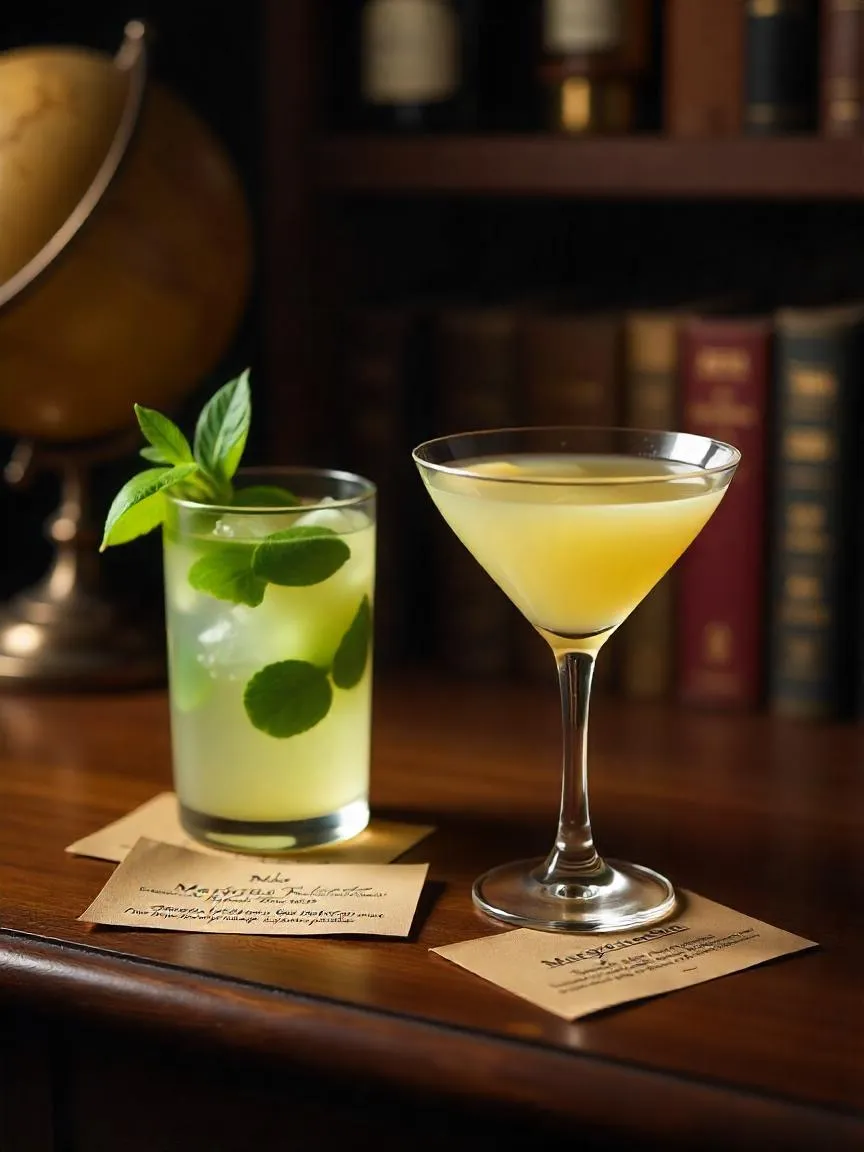
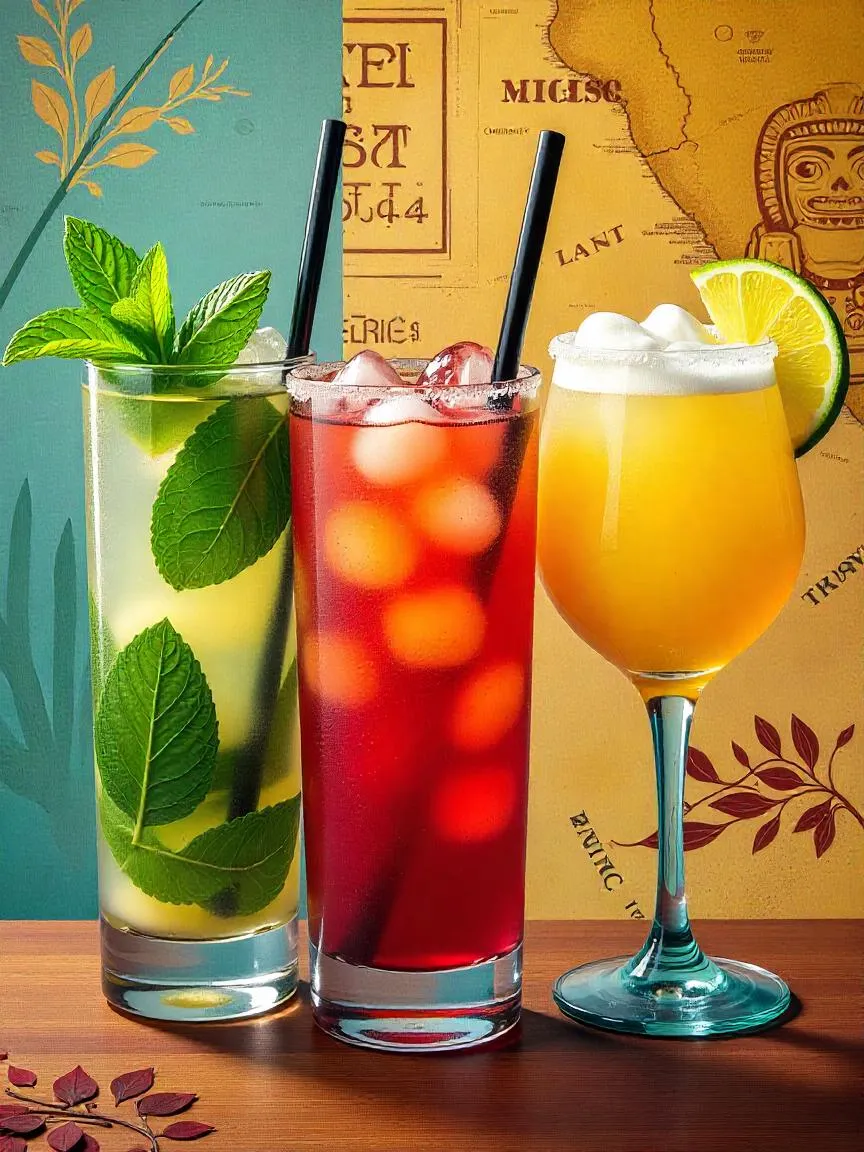
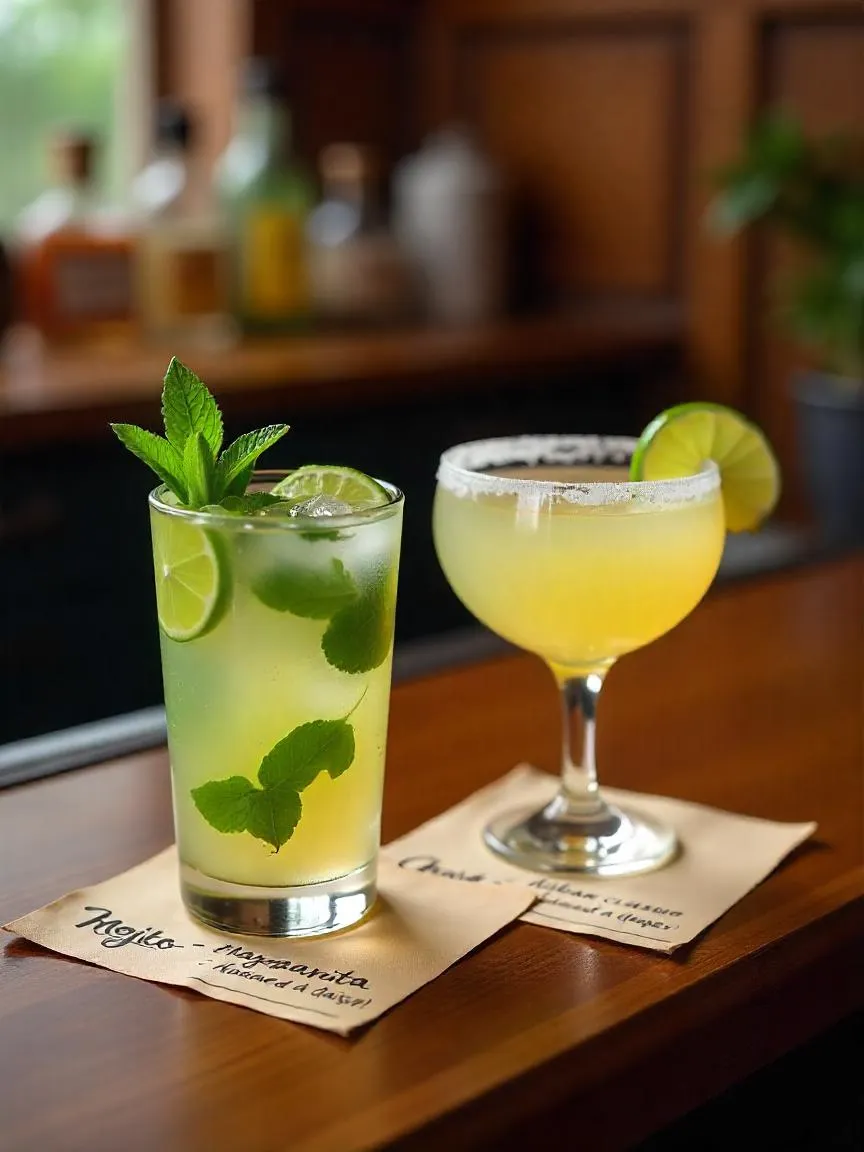
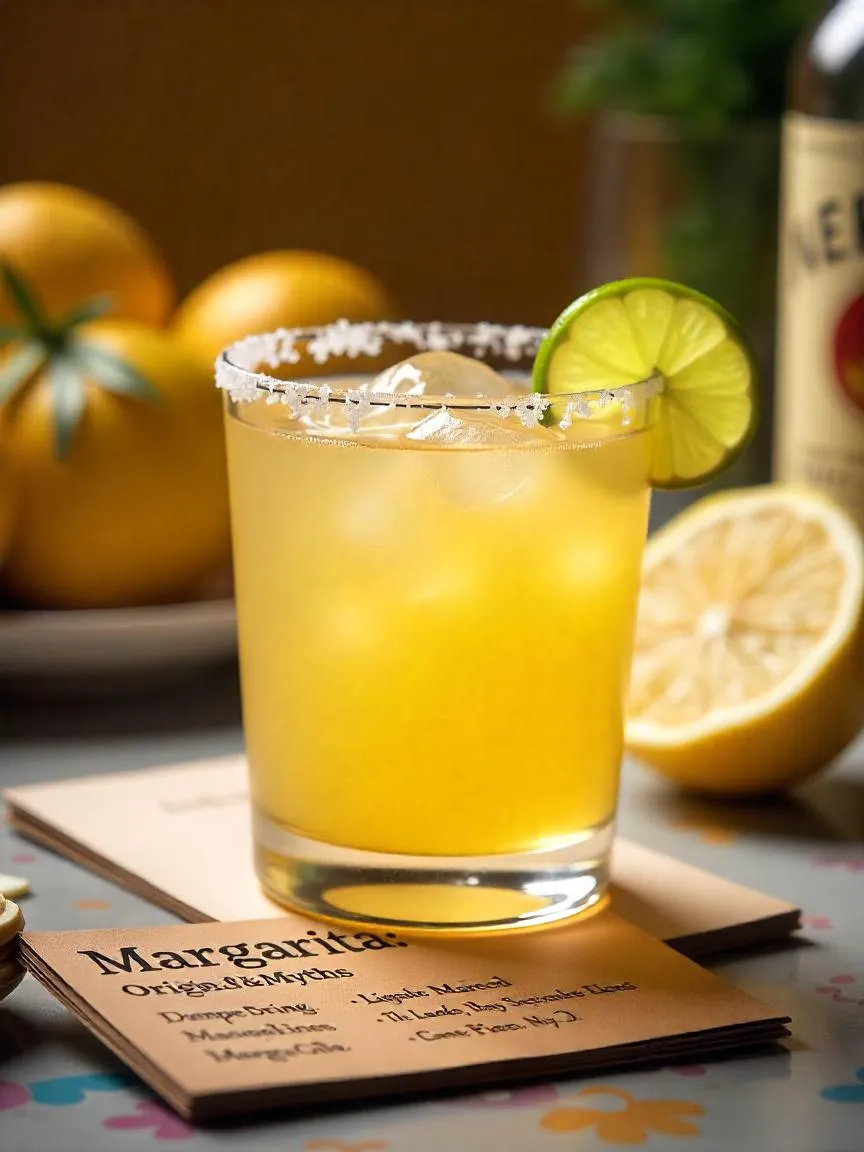
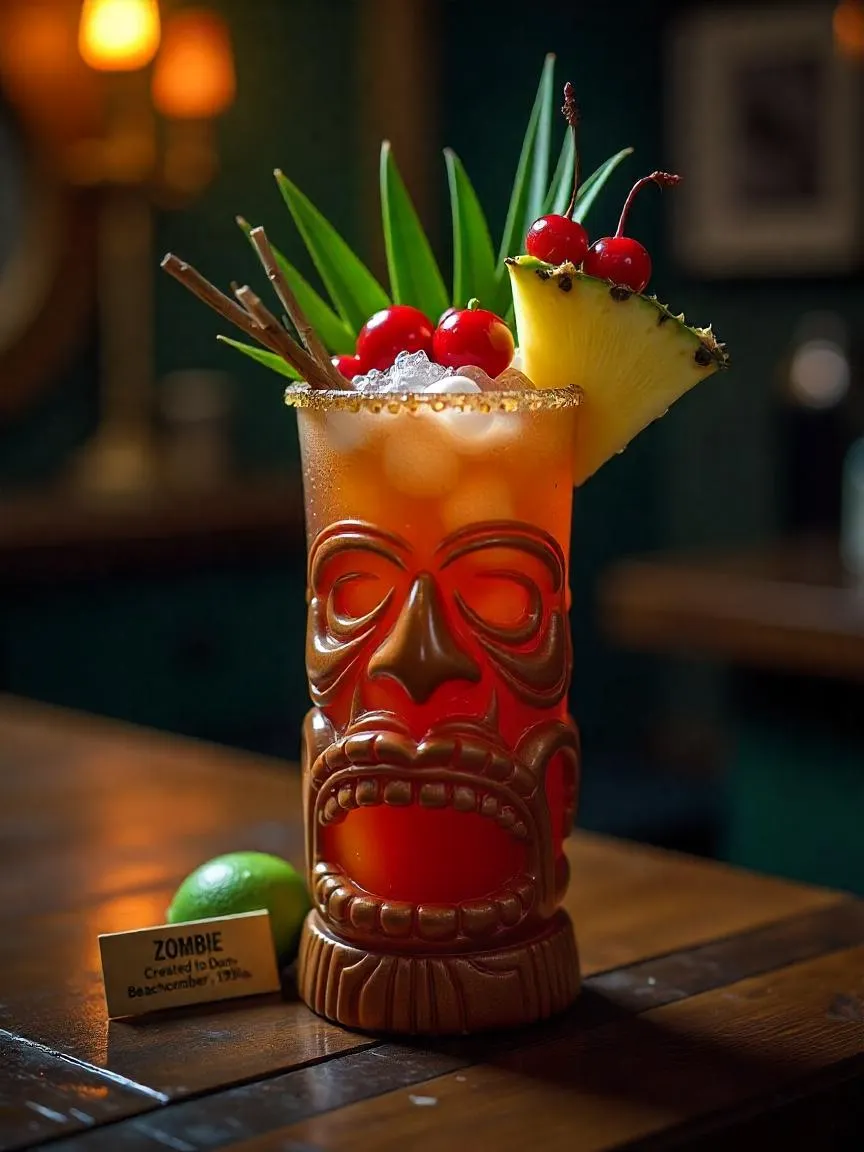
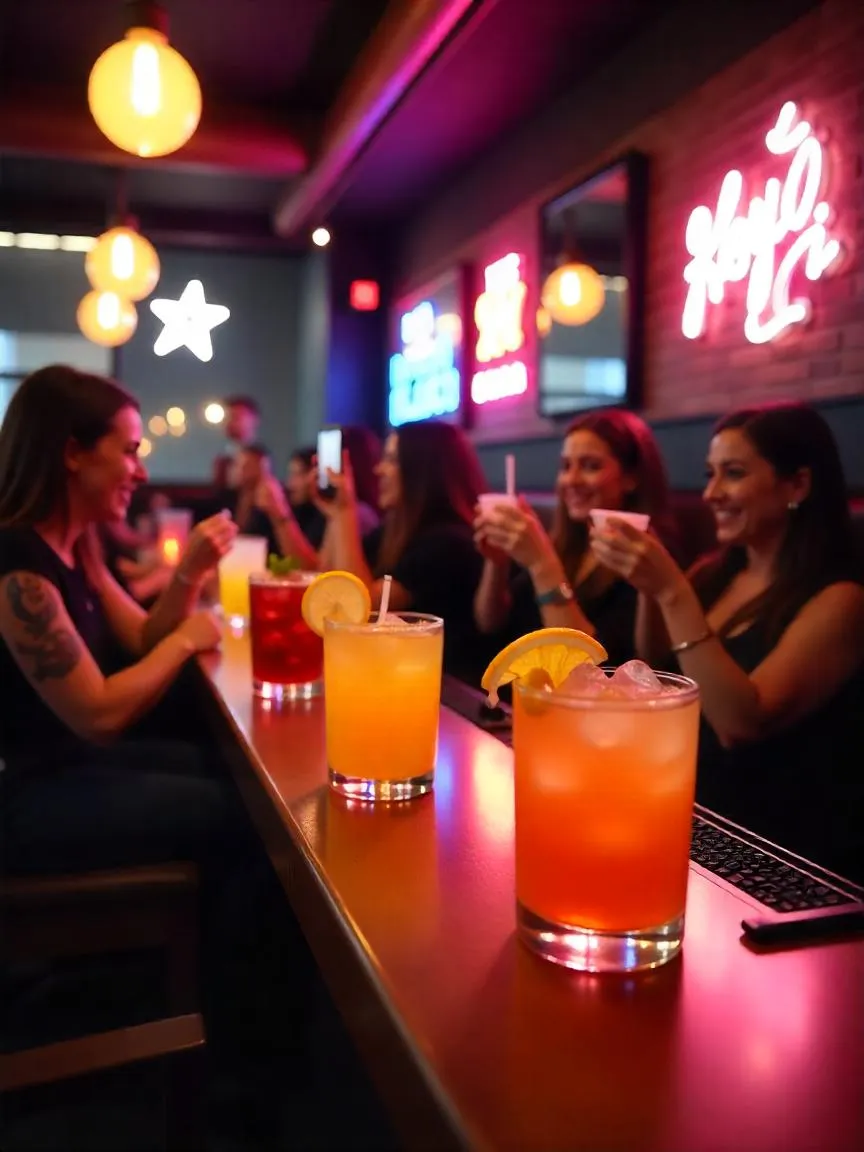

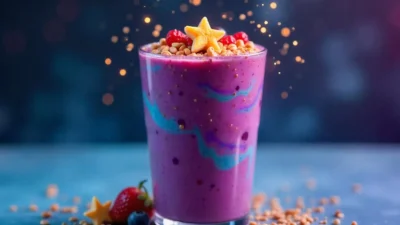
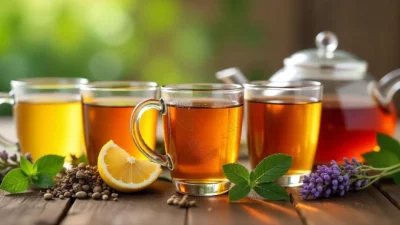
Ooh, I love this! I’m always fascinated by the history behind food and drink names, and this is such a fun angle on cocktails. Never knew the Margarita connection to “daisy”— that’s beautiful! I’m definitely going to be looking at my next cocktail with a more curious eye now. Thanks for sharing this interesting post!